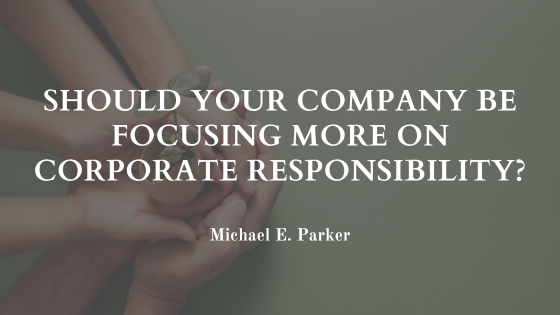Corporate responsibility isn’t just a buzzword; it’s an ethos that’s gaining traction across industries. With the world’s growing environmental concerns, social inequalities, and ethical considerations, the spotlight is on companies to step up and contribute positively to society. But should your company be prioritizing corporate responsibility? Let’s take a deeper look into why it’s becoming increasingly crucial and the benefits it can yield.
Firstly, embracing corporate responsibility isn’t solely about altruism. It’s a strategic move that can yield numerous advantages for your company. Consumers today are more conscientious, seeking products and services from companies that align with their values. Studies indicate that a substantial percentage of consumers are willing to work with socially responsible companies. By integrating responsible practices, your company can tap into this growing consumer segment, fostering loyalty and brand advocacy.
Moreover, corporate responsibility isn’t limited to consumer perception; it also impacts employee engagement. A socially responsible company is often more attractive to potential hires and can boost morale among existing employees. When employees feel their company is making a positive impact, it enhances their sense of purpose and job satisfaction, which can lead to improved productivity and retention rates.
From an operational standpoint, adopting responsible practices can result in cost savings and long-term sustainability. Efforts toward reducing waste, improving energy efficiency, and embracing eco-friendly practices not only contribute to a healthier planet but can also lead to reduced expenses through streamlined processes and resource optimization. Additionally, companies that prioritize ethical sourcing and fair labor practices tend to build stronger relationships with suppliers and communities, reducing risks associated with negative publicity or supply chain disruptions.
However, integrating corporate responsibility isn’t without challenges. It requires a fundamental shift in mindset and operations. Companies must assess their impact on society and the environment, set measurable goals, and transparently communicate their efforts to stakeholders. Additionally, navigating the complexities of implementing responsible practices across diverse operations demands commitment, resources, and continual evaluation.
Yet, the rewards of embracing corporate responsibility far outweigh the challenges. Beyond financial gains, it’s about contributing to a sustainable future and leaving a positive legacy. As global issues like climate change and social inequality continue to escalate, the role of businesses in addressing these challenges becomes increasingly pivotal.
Whether your company is a multinational corporation or a small startup, integrating corporate responsibility should be a priority. Start by identifying areas where your company can make a meaningful impact. It could involve supporting local communities, reducing carbon footprints, championing diversity and inclusion, or implementing ethical sourcing practices.
The era of focusing solely on profit maximization is evolving. Corporate responsibility has emerged as a critical component for long-term success, fostering consumer loyalty, employee engagement, operational efficiency, and contributing to a more sustainable world. So, should your company be focusing more on corporate responsibility? The answer is a resounding yes, with benefits that extend far beyond the bottom line.
